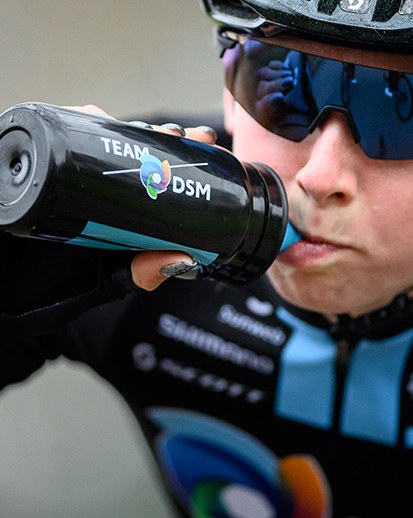Business & Governance
In the following sections, we elaborate on the material topics defined in the Materiality matrix and describe how we manage these topics.
Innovation
This topic refers to the company’s technology capabilities and research & development investments to develop innovative, sustainable solutions.
Management approach: Our innovation and research & development capabilities support us in achieving our growth targets. Through collaborations and partnerships, we bring new thinking and new solutions into the company. Through our venturing activities, we invest in emerging innovative companies around the world.
For information on this topic, see:
Business ethics & transparency
This topic addresses the company’s approach to and public disclosure on ethical and fair business conduct, corporate governance and compliance. This includes taxation, privacy, bioethics, fraud, bribery & corruption, and fiduciary responsibilities.
Management approach: We take our responsibilities as a business seriously. Our approach to ethics and transparency is led by the DSM Code of Business Conduct and our Supplier Code of Conduct. DSM’s tax position is consistent with the normal course of our business operations and reflects the corporate strategy as well as the geographic spread of our activities. It is available through our position paper. We transparently report on our business through this Report and our public statements.
For information on this topic, see:
Geopolitical shifts & (trade) dynamics
This topic refers to geopolitical shifts and dynamics such as political tensions and inequalities. It also includes the impact of trade policies and barriers.
Management approach: Through our partnerships and stakeholder engagement activities, we monitor topics relevant to our business. We identify risks and mitigating actions through our risk management approach, and apply standard business processes and practices to manage trade control compliance.
For information on this topic, see:
Advocacy, engagement & partnering
Engagement with our stakeholders is essential. Through these engagements, we share insights on relevant issues that arise from, and impact on, our business activities. Multi-stakeholder collaboration is essential for the achievement of the Sustainable Development Goals, in particular in developing countries through the development of suitable products and processes.
Management approach: We engage with our stakeholders to help define the topics that are material to our business and our reporting. We collaborate in platforms and networks that contribute to our purpose and align with our Focus Domains of Nutrition & Health, Climate & Energy, and Resources & Circularity.
For information on this topic, see:
Cybersecurity
Preventing fraud and the unauthorized access to our networks, IT systems and data, while ensuring company and employee data protection.
Management approach: Cybersecurity is managed by Operations & Responsible Care. Awareness on cybersecurity is addressed through the Security e-learning covering our key security behaviors and the Cyber Fraud Awareness e-learning. Global, as well as targeted, phishing tests are regularly carried out to ensure our people stay alert.
For information on this topic, see:
Digital transformation
Digital transformation refers to the application of digital technologies to all aspects of business and society.
Management approach: Our Data Analytics Center of Excellence and Digital Acceleration Group will support us in the acceleration of digital insights and solutions. Digital solutions also support and strengthen our customer relationships. We monitor and mitigate potential risks relating to digital through Group Risk Management. Our Information Security Office and Privacy Policy guide our approach toward the security of information assets.
For information on this topic, see:
Product stewardship
Product stewardship addresses the incorporation of sustainability factors in characteristics of products provided by the company. It covers managing the lifecycle impacts of products along the value chain, such as sourcing, packaging, distribution, use-phase resource efficiency, and other environmental and social externalities.
Management approach: Our product stewardship statement describes our approach on this topic. We assess our products and are committed to have an action plan in place for substances of very high concern by the end of 2020. We take a risk-based approach to product stewardship and will use alternatives where feasible, and always where required. We also see the opportunities for safer products with fewer or no hazardous properties in the circular economy.
For information on this topic, see:
Consumer behavior & activism
Addressing changes in consumer behavior and awareness by manufacturing products that consider future needs of society and the environment.
Management approach: Consumer behavior & activism can be both a risk and an opportunity to the company. We recognize shifts in business models, industry and end-consumer behavior, and the ability to respond to changes in our emerging risks. We have shifted our innovation approach to be platform based, and have identified seven growth themes that align to our future strategic needs and support our growth ambitions. These themes align to major global societal, technological and environmental trends.
For information on this topic, see:







